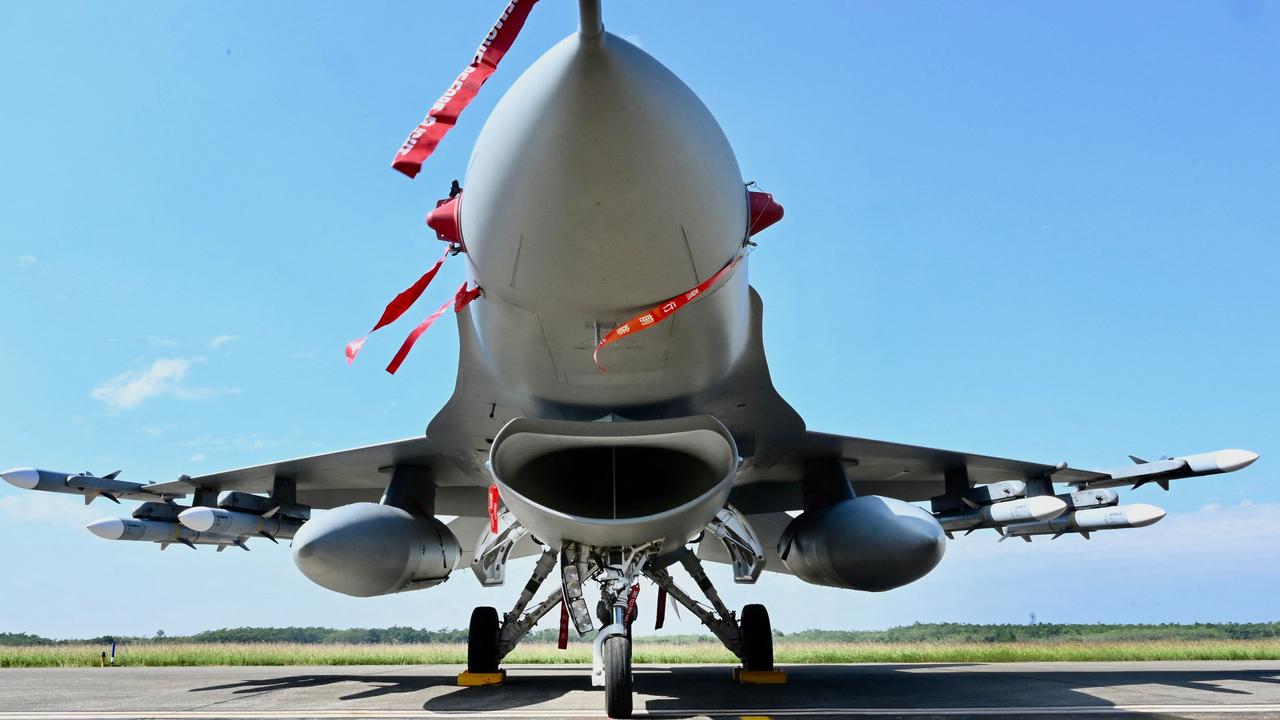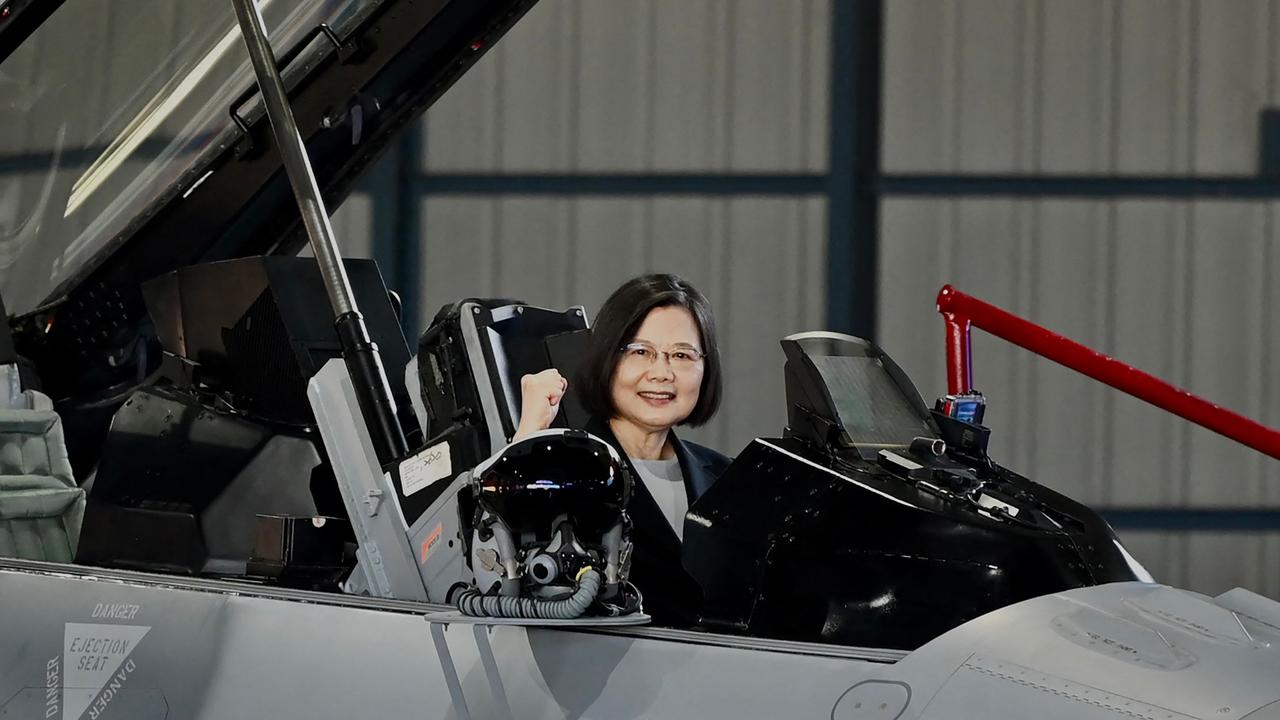Second US delegation visits Taiwan this month in surprise visit as China steps up military action
The US has made a surprise visit to Taiwan in a fresh sign of American support, with China already angry over the trip.
A group of five US politicians have arrived in Taiwan in a surprise visit in the second such delegation this month and a fresh sign of American support just days after President Joe Biden invited Taipei to a democracy summit.
International sympathy for Taiwan having a place on the world stage is growing, especially among western nations, as China’s authoritarian leader Xi Jinping takes an increasingly bellicose approach towards the island.
China claims self-ruled democratic Taiwan as its territory, to be retaken one day by force if necessary, and has stepped up efforts to diplomatically isolate it.
President Xi Jinping has described the seizure of Taiwan as “inevitable” and last month, Beijing sent a record number of military aircraft into Taiwan’s airspace. Nearly 150 warplanes had breached the island’s air defence identification zone (ADIZ) in one week.
A warm #Taiwan🇹🇼 welcome to @RepMarkTakano, @RepSlotkin, @RepColinAllred, @SaraJacobsCA, @RepNancyMace & congressional staffers. We wish the bipartisan #US🇺🇸 House of Representatives delegation a productive & rewarding visit focusing on bilateral relations & regional security. pic.twitter.com/4qCz4cCDZE
— 外交部 Ministry of Foreign Affairs, ROC (Taiwan) 🇹🇼 (@MOFA_Taiwan) November 25, 2021
President Tsai warned of “catastrophic consequences” if the island were to fall to China and vowed to “do whatever it takes” to guard against threats.
“When news of our trip broke yesterday, my office received a blunt message from the Chinese Embassy, telling me to call off the trip,” Congresswoman Elissa Slotkin, one of the delegates, wrote on Twitter.
Nancy Mace, the only Republican in the group, tweeted her arrival with a selfie and the words: “Just touched down in the Republic of Taiwan”.
That choice of wording is significant, because Taiwan’s official name is the Republic of China — but those who favour independence often use the phrase Republic of Taiwan instead.
Just touched down in the Republic of Taiwan. 🇺🇸🇹🇼 pic.twitter.com/p7HH8Iet3A
— Rep. Nancy Mace (@RepNancyMace) November 25, 2021
After celebrating Thanksgiving with U.S. troops in Korea, I just touched down in Taiwan. After stops in Japan and Korea, it’ll be good to connect with leaders here to discuss a whole host of economic and national security issues. (1/3)
— Rep. Elissa Slotkin (@RepSlotkin) November 25, 2021
Beijing baulks at any use of the word “Taiwan”, or any references to the island as a “country” and diplomatic gestures that might lend a sense of international legitimacy to the island.
Taiwan is only recognised by 15 other nations but it maintains de facto diplomatic relations with multiple countries.
The latest visit by the politicians came after Taiwan was invited to join Biden’s planned democracy summit, a move which led to an angry rebuke from Beijing.
It also comes days after China downgraded diplomatic relations with Lithuania because Vilnius allowed Taiwan to open a de facto embassy.

China’s foreign ministry spokesman Zhao Lijian protested the visit and warned of consequences for “US politicians wantonly challenging the One-China principle”.
“Let me offer a bit of advice to some Americans: don’t play the Taiwan card. Because that’s a bad one. You won’t win. You will only hit a wall and suffer the consequences of your own actions,” he said.
The US delegation touched down after celebrating Thanksgiving with US troops in South Korea.

It is led by Mark Takano, chairman of the House Committee on Veterans’ Affairs, and includes Colin Allred and Sara Jacobs, as well as Slotkin and Mace.
“After two trying years that we’ve endured, our commitments and our shared responsibilty for a free and secure Indo-Pacific region remain stronger than ever,” he said.
First read-out of the US congressional visit to #Taiwan assesses that President Tsai is “kick-ass†https://t.co/x2GkXJ6afE
— Nicola Smith (@niccijsmith) November 26, 2021
In the United States, support for Taipei and its 23 million inhabitants is a rare issue on which there is cross-party consensus.
Washington has remained a key ally and its biggest arms supplier, despite switching recognition to Beijing in 1979.
Since her election in 2016, President Tsai has tried to assert the island’s distinct identity, provoking China’s anger.
“Taiwan will continue to step up co-operation with the United States in order to uphold our shared values of freedom and democracy, and to ensure peace and stability in the region,” said Taiwan’s President Tsai Ing-wen when meeting the delegation.
Australia joins
Last month, former Australian prime minister Tony Abbott appeared in Taiwan to “break bread” in the face of growing tensions with China as it threatens “war is real”.
Mr Abbott, who stressed he was on the island nation in a private capacity and not representing the Australian government, still appeared alongside Taiwan’s leader after flying in on October 5.
He was flanked by Australia’s most senior official on the island, Jenny Bloomfield.
It is the first time a former Australian Prime Minister has met a sitting Taiwanese leader.
Good mate @HonTonyAbbott knows I have a kangaroo in my heart. JW pic.twitter.com/9vr08SKJbL
— 外交部 Ministry of Foreign Affairs, ROC (Taiwan) 🇹🇼 (@MOFA_Taiwan) October 7, 2021
Ms Tsai said Taiwan and Australia “have long been important partners”, noting Taiwan-Australia trade had grown steadily at 10 per cent annually over the past five years.
Similar to his American counterparts, Mr Abbott described Taiwan as a country and not a province, hailing Beijing its “giant neighbour”.
“It is in large measure to try to help to end this isolation from which Taiwan has been suffering for so many decades that I am here in this country and I do hope that this will be the first of many visits,” he said.
“If I may say so, perhaps in recent times, countries like Australia have over emphasised fostering democracy in places where it has never taken root and under emphasised protecting democracy in places where it has.
“Of course not everyone and not everywhere is pleased at Taiwan’s progress, and I do note that Taiwan is challenged on an almost daily basis by its giant neighbour,” he said.
“It’s more important than ever, under such circumstances, that your fellow democracies stand shoulder to shoulder with you.”
“The best thing that countries like Australia can do for Taiwan is to try to build an ever deeper relationship across the board, but particularly in trade,” he said





